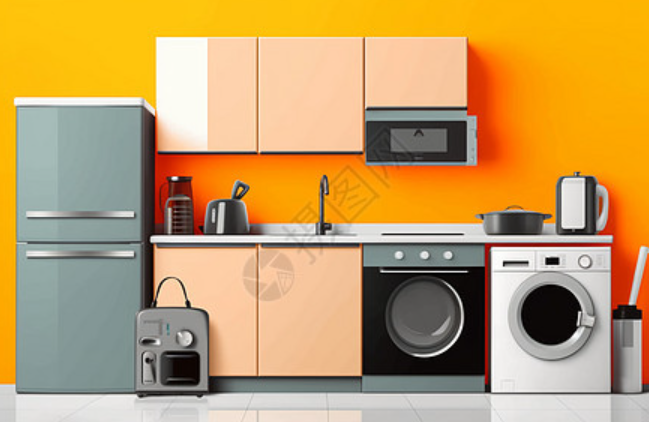
For renters aged 20-40 in Europe and America, rental apartments often come with a hidden stressor: faulty appliances. A broken refrigerator spoiling groceries, a malfunctioning washing machine leaving piles of dirty laundry, or a faulty heater failing in winter—these issues are not just inconvenient, but financially risky. Traditional rental agreements rarely clarify responsibility: some landlords delay repairs or claim “wear and tear” exemptions, leaving tenants to cover unexpected costs that can range from €150 for a dryer fix to $500 for a new oven. Appliance breakdown insurance for rental apartments has emerged as a targeted solution, shielding young renters from these financial burdens and ensuring seamless access to repairs.
This insurance model is designed specifically for renters, focusing on the appliances most critical to daily life. Typical coverage includes essential items provided by landlords: refrigerators, washing machines, dryers, dishwashers, ovens, stoves, and heating/cooling systems. Unlike home warranty plans (which often require landlord participation) or tenant insurance (which rarely covers landlord-owned appliances), appliance breakdown insurance directly protects renters. When an appliance fails due to mechanical or electrical issues—even normal wear and tear—policyholders file a claim, and the insurer arranges for a certified technician to repair or replace the item. Most policies also cover emergency services, such as 24/7 support for a broken heater in a Parisian winter or a faulty AC in a Miami apartment, ensuring issues are resolved quickly.

For young renters, the benefits are transformative. First, it eliminates financial uncertainty: instead of scrambling to pay for unexpected repairs, tenants pay a low monthly premium (usually €15-€30 in Europe, 20−40 in the U.S.)—a fraction of the cost of a single major repair. A 2025 survey by the U.S. Rental Housing Coalition found that renters with this insurance saved an average of $380 annually on appliance-related expenses. Second, it avoids landlord disputes: tenants no longer have to negotiate repair timelines or prove the fault isn’t their own— the insurer handles communication with landlords or repair teams, reducing stress for busy professionals or students. Third, it offers flexibility: policies are often month-to-month, ideal for renters who move frequently (a common trend among 20-40-year-olds) and don’t want long-term commitments.
The market for this insurance has expanded across Europe and America, with providers offering tailored plans. In Europe, companies like Domestic & General (UK) and Allianz Partners (Germany) offer rental-specific appliance coverage, including add-ons for smaller items like microwaves or coffee makers. In the U.S., Assurant and Choice Home Warranty provide renter-focused plans, with options to cover appliances in apartments, condos, or shared housing. Many providers also offer digital claim processes—tenants can submit a request via app, upload photos of the faulty appliance, and track repair progress in real time, aligning with the tech-savvy habits of young users.

When choosing a policy, renters should prioritize three factors. Coverage limits: Confirm the policy covers the full cost of repairs or replacements (avoid plans with low caps that leave you out of pocket). Exclusions: Check for exceptions (e.g., damage from neglect or natural disasters) and ensure common issues like motor failure or electrical faults are included. Provider reputation: Opt for insurers with high customer satisfaction ratings for repair speed and technician quality—review sites like Trustpilot or Consumer Reports can help compare options.
For 20-40-year-old renters in Europe and America, appliance breakdown insurance isn’t just an add-on—it’s a tool for stable, stress-free living. By taking the guesswork out of appliance repairs and protecting against unexpected costs, it lets renters focus on enjoying their homes, not worrying about the next breakdown. In a rental market where uncertainty is common, this insurance model offers something invaluable: peace of mind.





